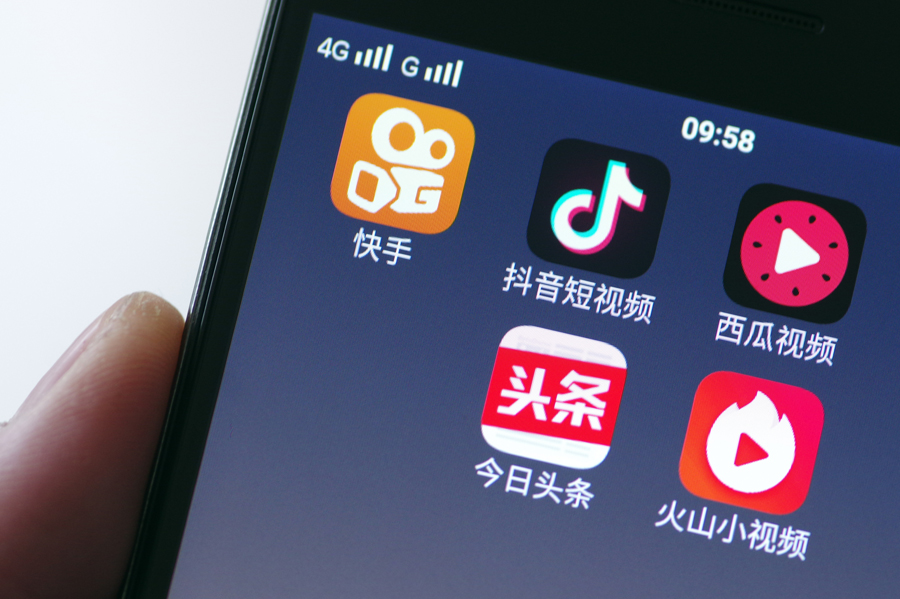Balanced view urged for parents on digital life
By BELINDA ROBINSON in New York | China Daily | Updated: 2020-02-25 10:04

Reject fears, experts say, citing benefits of smartphones and internet for children
Children who were born in the past 20 years will never know a world without smartphones or the internet.
The iGen-those born from 1995 to 2012-have had their childhoods transformed by devices such as mobiles, tablets and laptops when compared with their parents and grandparents.
This shift raised initial concerns after the launch of Apple's iPhone in 2007. In 2011, the American Academy of Pediatrics released a paper warning that Facebook could give children depression.
But by 2016, they amended their findings, acknowledging that the digital world and its effects on children were constantly evolving.
Today, experts are torn on whether smartphone and internet use by children is harmful.
Adam Pletter, a child psychologist in Bethesda, Maryland, and creator of website 'iparent101', told China Daily: "In my professional experience, there is a clear correlation (relationship) between increased time, consuming digital content, and increased mood, anxiety and attentional challenges for all humans, especially children and adolescents, given their stage of development.
"Humans are designed to seek out information (which helps us survive), and social media, games and ease of access to it all pulls us into the never-ending loop. The internet does not end. There is always more amazing content to scroll through. This ...frequently has an impact on developing social skills and mental health."
In the United States, 53 percent of children aged 11 own a smartphone, and by the age of 12, 69 percent of them own their own mobile device, according to a report by Common Sense Media, a nonprofit organization that assists families in promoting safe technology and media for children.
In China, more than 90 percent of teenagers up to the age of 18 access the internet through a mobile phone, according to the Bluebook of Teenagers published by the Chinese Academy of Social Sciences. And 85 percent of all teens use social networking site WeChat.
Jordan Shapiro, an assistant professor at Temple University and author of The New Childhood: Raising Kids to Thrive in a Connected World, believes there is unnecessary "paranoia" and "fear" about children's use of smart devices.
"As a parent, I am constantly nervous. I recognize that changes in technology represent even larger cultural, economic and political changes. But deep down I know my kids will be fine ... Computers are doorways that open into magical, limitless connected worlds," he writes in his book.
Suggestion by WHO
The World Health Organization advised in 2019 that children under one year old shouldn't be exposed to an electronic screen, and those between the ages of 2 and 4 shouldn't have more than one hour of "sedentary screen time" each day.
For parents, smartphones have created a new frontier to monitor old problems like bullying, sexual predators and bad behavior. The Pew Research Center found in 2016 that 60 percent of parents of teens between the ages of 13 and 17 had checked their children's social media and browser history.
Bark, a parental-control monitoring app, said in 2018 that it scanned 900 million messages among 2.6 million school-issued accounts in the US. The scan tracks e-mail accounts, children's texts and social media, and alerts parents if they find content with drug or alcohol use.
Pletter adds: "The amazing and concerning thing about smartphones is that they are all-in-one devices, so this complicates the parenting landscape for well intentioned, modern parents, many of whom are digital immigrants raising digital natives."
Yet children can still dodge their parents' spying eyes by using a burner (paywall) phone or creating a finsta, a fake Instagram account that contains risque content that they would prefer to hide.
Parents should resist monitoring and blocking potential harm, says Pletter. Instead, he advises that they "set enforceable limits aimed at teaching children the importance of self-regulation so these children can be the future adults they need to be".
Pletter said it's important that parents are mindful of how they use their own cellphones because children learn by observing them.
International research into smartphone-usage has recently shifted from assessing the amount of time teens spend on them to the relationship they have with the devices. A November 2019 study by researchers at Kings College, London, examined data from 41 studies involving 42,000 participants across Europe, the US and Asia.
They found one in four children had "problematic smartphone usage" such as neglecting chores to be on it or anxiety if the phone wasn't available. Teenage girls struggled the most with this.
Nicola Kalk, co-senior author of the study from the London-based Institute of Psychiatry, Psychology and Neuroscience, said in a statement: "Smartphones are here to stay, and there is a need to understand the prevalence of problematic smartphone usage. We don't know whether it is the smartphone itself that can be addictive or the apps that people use."
























